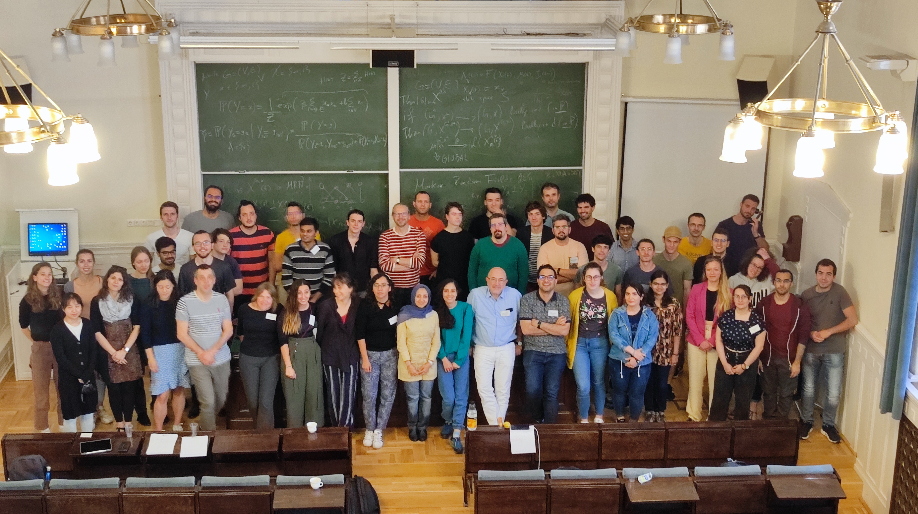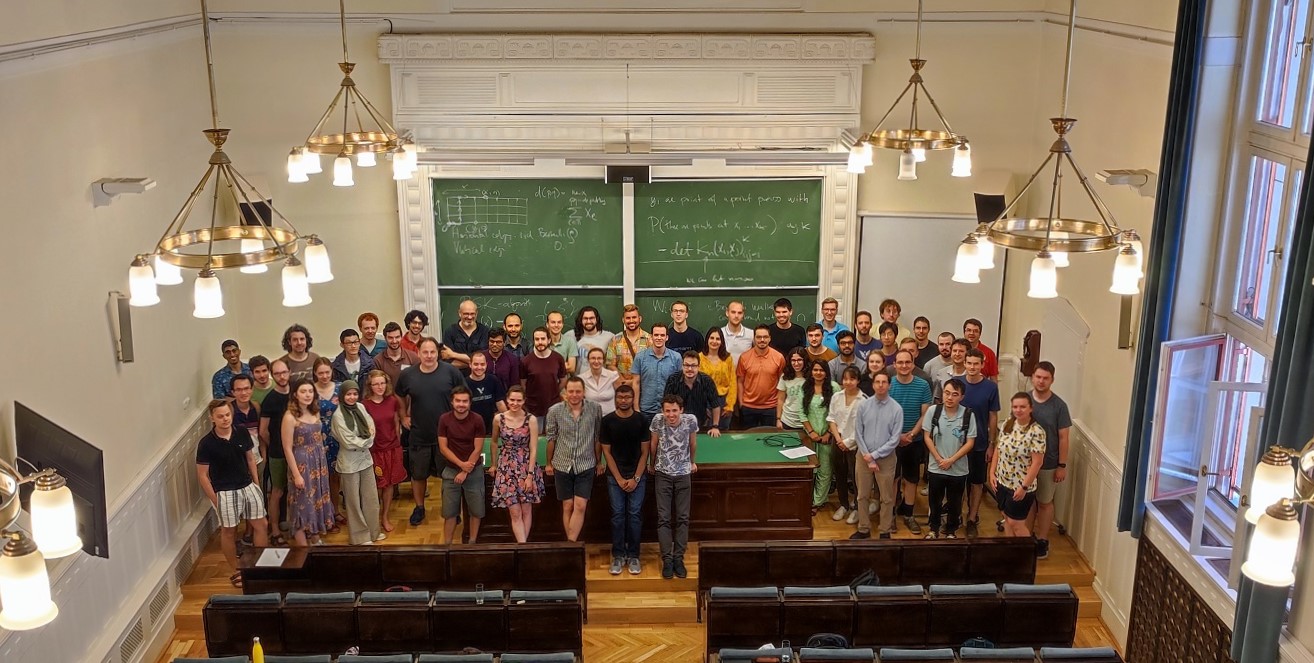During the past few weeks, I participated in two summer schools at the Alfréd Rényi Institute of Mathematics, as part of the Erdős Center semester on Large Networks and their Limits. In addition to being participants and attending the lectures, Aranka Hrušková and I helped to keep things running smoothly for both schools, and we organized some social events for the second summer school.
The first summer school, titled Mathematics of Large Networks, was a bridge between two communities (mathematics and network science) studying the same subject through two different lenses. There were five mini-courses which were each focused on presenting some aspect of mathematical theory which is helpful in the study of real-world networks. Most of the mini-courses also had some TA sessions where a younger researcher would go through the details of a problem or a proof, and in the evenings there were also sessions for participants in the summer school to present their own research in or around network theory.

Coming from a more mathematical background, I was initially a bit lost as the network scientists use a slightly different lecturing style than I am used to, and they have developed a specific set of jargon to refer to certain properties of networks. Fortunately, the lecturers were happy to talk during the coffee breaks, and soon I learned what terms like "small world," "scale free" and "mean field" meant, and why people cared about these properties. Once I started to understand what they were saying, I found it really cool to see how the mathematics that I know can be useful in applications, and I came away from the first summer school with a much clearer understanding of network science.
I had more direct involvement with the second summer school, which was called Graphs, Groups, Stochastic Processes and was more focused on mathematics itself rather than applications. For me, this summer school was a full week of intense learning. Six different instructors each taught a mini-course with three lectures, and we had a few discussion sections to talk about questions we had about the content of the lectures. The topics of the courses were all related to probability and graph theory in some way (think: percolation, random walks, statistical mechanics, graph limits). Groups entered the picture as well, but mostly just to be studied as Cayley graphs.
I attended all of the lectures, and although some were harder to understand than others (a better background in probability theory would definitely have been helpful!), I think got something useful or interesting out of every single one. The instructors were great at engaging with the audience, and we took advantage of that by asking lots of questions during the lectures. They were also easy to approach during the social events, and the discussion sessions in the evenings allowed them to expand on their material in directions that the participants were interested in.

The program was also a great chance to meet other young researchers. Beyond just the lectures and the coffee breaks, we organized some special social programs. There was a wine and cheese night, and a planned picnic which the rain transformed into a party at the institute with drinks, snacks, table tennis, chess, and karaoke. We also organized an event at a local escape room company, where the participants split up into groups of about four in order to solve an interactive hour-long thematic puzzle contained inside of a few small rooms. Finally, after all of the lectures were over, many of us went to relax in one of the local thermal baths of Budapest. All of these events allowed people to get more comfortable and talk to each other—for mathematicians, this is not always a trivial task!
Overall, the summer schools were a fun and memorable experience. I hope that when the participants look back on these weeks, they will have many stories to tell, both mathematical and interpersonal. I know I will.
